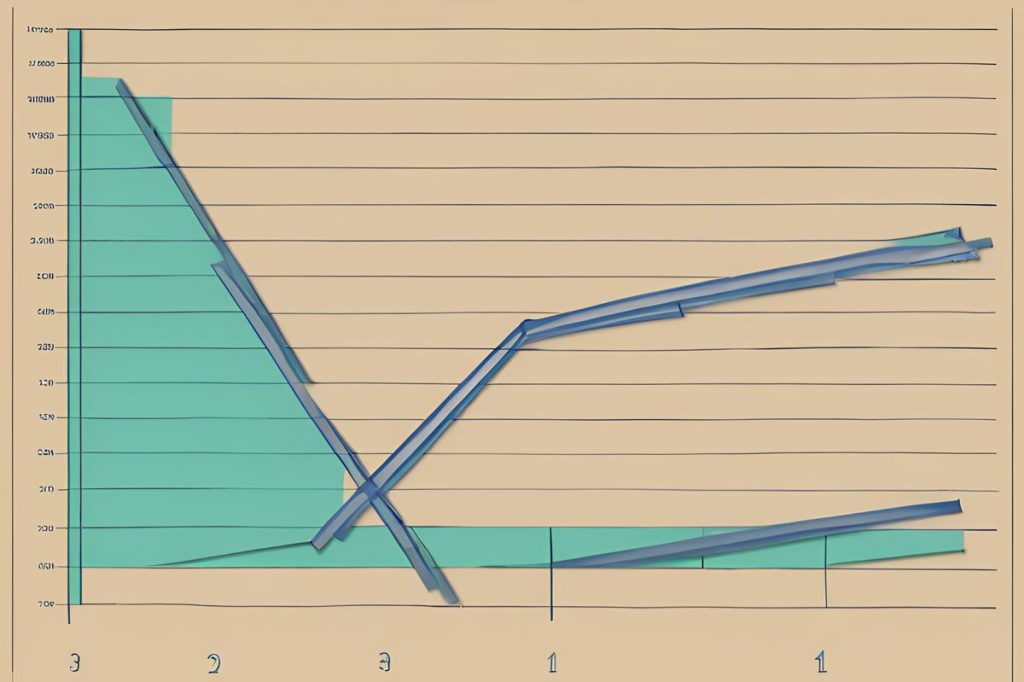In February 2024, Cyprus experienced a surge in new loans totaling €575.5 million, driven by increased lending to companies, signaling economic growth and confidence in the financial sector. The rise in loans, particularly in the corporate sector with significant loans exceeding €1 million, highlights a shift towards larger-scale investments and expansion within the Cypriot economy.
What caused the surge in new loans in Cyprus in February 2024?
In February 2024, Cyprus saw new loans surge to €575.5 million, largely due to a significant increase in loans extended to companies, indicating economic momentum and confidence among lenders and borrowers. The corporate sector, particularly with large-scale loans over €1 million, played a key role in this financial expansion.
A Substantial Increase
The financial landscape in Cyprus experienced a significant shift in February 2024. The total new loans issued witnessed a rise, totaling €575.5 million, a noticeable increase from €462.7 million just a month earlier. This upsurge is a clear indicator of economic momentum and perhaps, growing confidence among lenders and borrowers alike. It’s particularly interesting to note that this increase is largely due to the loans extended to companies, which saw a substantial bump of approximately €130 million.
While dissecting these numbers, it’s evident that the corporate sector is playing a pivotal role in this financial expansion. The Central Bank of Cyprus provided a breakdown of these figures, showing a dynamic shift in the business financing landscape. This upward trend suggests a robust appetite for investment and expansion among businesses operating within the Cypriot economy.
Interest Rates on the Move
Alongside the increase in new loans, there has been a fluctuation in interest rates across various loan categories. Corporate loans, for instance, have seen a rise in interest rates. Conversely, those looking to invest in real estate may find it more favorable now, as the interest rates on loans for house purchases have taken a downward turn. This sort of divergence in interest rates reflects the complexities of the economic environment, where different sectors can experience contrasting financial conditions.
Consumer loans, however, experienced a decline, coming in at €23.2 million with net new loans at €21.3 million, down from the previous month’s €26.7 million (with €19.7 million in net new loans). This decrease could be indicative of a more cautious approach to personal finance or possibly a shift in consumer spending habits.
Corporate Lending Takes the Lead
Diving deeper into the corporate world, new loans to non-financial corporations for amounts up to €1 million have also seen a decrease, settling at €57.3 million in net new loans. Despite this, larger corporate loans exceeding €1 million experienced quite the opposite trend, with a substantial rise to €340.7 million, suggesting that while smaller enterprises are borrowing less, larger-scale projects and companies are ramping up their financial activities.
This contrast paints a picture of an economy where growth is perhaps being driven by major players and significant investments, rather than smaller business initiatives. This sort of dynamic can have widespread implications on the economic fabric of the country, influencing everything from employment to the availability of goods and services.
Deposit Interest Rates and Their Impact
Analyzing the savings side of finance, the interest rate for household deposits with a maturity of up to one year has seen a slight decrease to 1.98 percent. In comparison, non-financial corporations are encountering an increase in the interest rate for their deposits, which rose to 2.53 percent. These changes are crucial for potential savers and investors, as they can significantly influence the decision-making process regarding where to allocate resources.
As we examine these shifts, it’s clear that the financial climate in Cyprus is undergoing a transformation. From consumer behavior to corporate investment, the movement of money through loans and interest rates is a dance that reflects broader economic trends, sentiments, and future expectations. These numbers are not just digits on a balance sheet; they’re the pulse of an economy that’s always in motion, shaped by countless decisions and events, both local and global.
What caused the surge in new loans in Cyprus in February 2024?
In February 2024, Cyprus saw new loans surge to €575.5 million, largely due to a significant increase in loans extended to companies, indicating economic momentum and confidence among lenders and borrowers. The corporate sector, particularly with large-scale loans over €1 million, played a key role in this financial expansion.
What other trends were observed in the financial landscape of Cyprus in February 2024?
Alongside the increase in new loans, there have been changes in interest rates across various loan categories. Corporate loans saw a rise in interest rates, while interest rates for loans related to real estate purchases decreased. Consumer loans also experienced a decline, possibly signaling a shift in consumer spending habits or financial caution.
How did corporate lending contribute to the surge in new loans in Cyprus?
In February 2024, while new loans to non-financial corporations for amounts up to €1 million saw a decrease, larger corporate loans exceeding €1 million experienced a substantial rise. This trend suggests that larger-scale projects and companies are driving the financial growth in Cyprus, indicating a shift towards major investments within the economy.
How do changes in deposit interest rates impact savers and investors in Cyprus?
The interest rate for household deposits with a maturity of up to one year has slightly decreased to 1.98 percent, while non-financial corporations are facing an increase in the interest rate for their deposits, rising to 2.53 percent. These changes are significant for savers and investors as they influence decision-making processes regarding where to allocate resources, reflecting the evolving financial climate in Cyprus.

